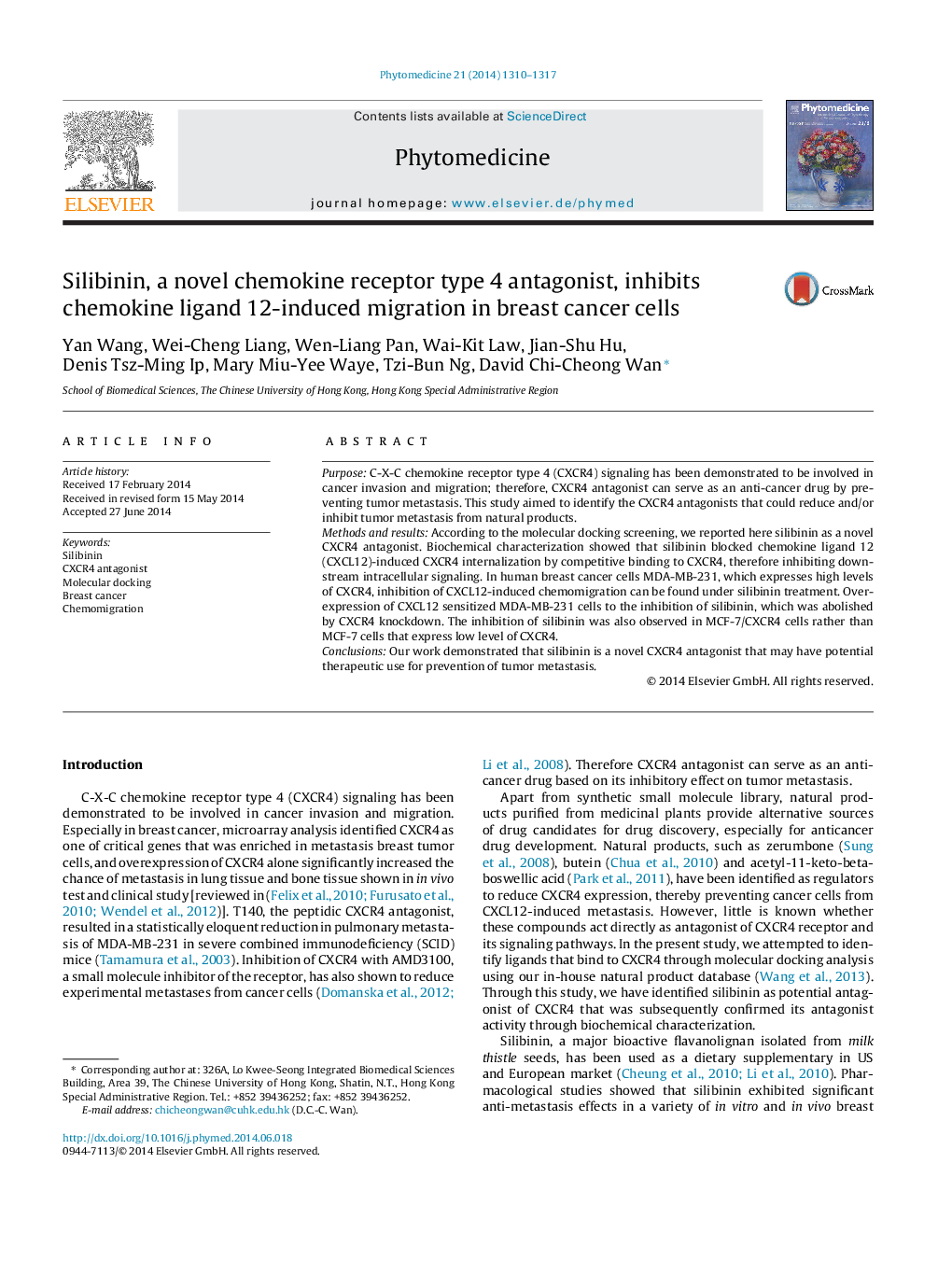| Article ID | Journal | Published Year | Pages | File Type |
|---|---|---|---|---|
| 5816600 | Phytomedicine | 2014 | 8 Pages |
Abstract
PurposeC-X-C chemokine receptor type 4 (CXCR4) signaling has been demonstrated to be involved in cancer invasion and migration; therefore, CXCR4 antagonist can serve as an anti-cancer drug by preventing tumor metastasis. This study aimed to identify the CXCR4 antagonists that could reduce and/or inhibit tumor metastasis from natural products.Methods and resultsAccording to the molecular docking screening, we reported here silibinin as a novel CXCR4 antagonist. Biochemical characterization showed that silibinin blocked chemokine ligand 12 (CXCL12)-induced CXCR4 internalization by competitive binding to CXCR4, therefore inhibiting downstream intracellular signaling. In human breast cancer cells MDA-MB-231, which expresses high levels of CXCR4, inhibition of CXCL12-induced chemomigration can be found under silibinin treatment. Overexpression of CXCL12 sensitized MDA-MB-231 cells to the inhibition of silibinin, which was abolished by CXCR4 knockdown. The inhibition of silibinin was also observed in MCF-7/CXCR4 cells rather than MCF-7 cells that express low level of CXCR4.ConclusionsOur work demonstrated that silibinin is a novel CXCR4 antagonist that may have potential therapeutic use for prevention of tumor metastasis.
Related Topics
Life Sciences
Biochemistry, Genetics and Molecular Biology
Clinical Biochemistry
Authors
Yan Wang, Wei-Cheng Liang, Wen-Liang Pan, Wai-Kit Law, Jian-Shu Hu, Denis Tsz-Ming Ip, Mary Miu-Yee Waye, Tzi-Bun Ng, David Chi-Cheong Wan,
